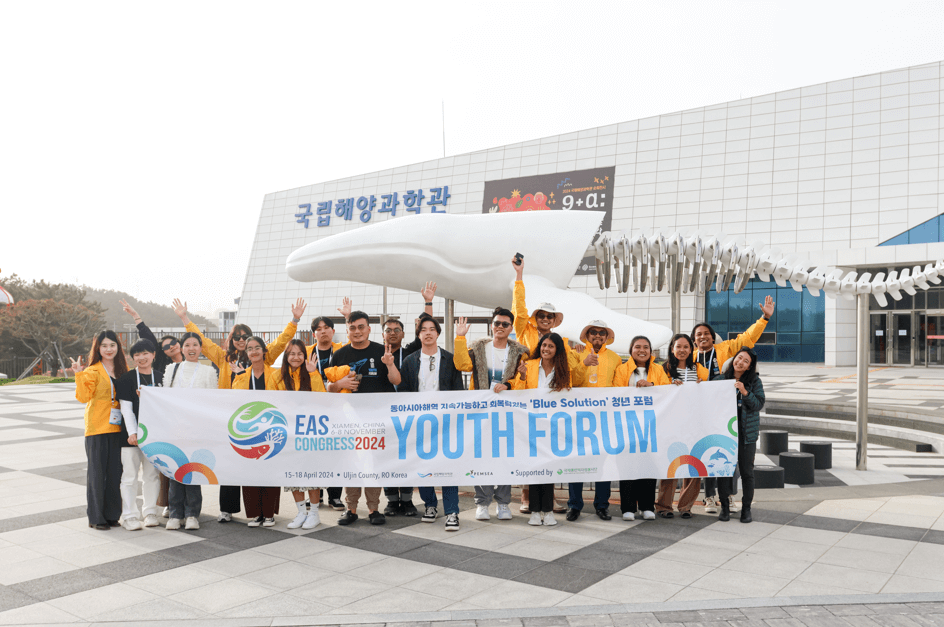Ship Waste Management in Philippine Ports Project Successfully Completed
Monday, 7 November 2022

In June 2022, PEMSEA successfully concluded the implementation of the Ship Waste Management in Philippine Ports project, one of the national pilot projects funded under the Rethinking Plastics --- Circular Economy Solutions to Marine Litter of the European Union and the German Federal Ministry for Economic Cooperation and Development (BMZ) and implemented by the Deutsche Gesellschaft für Internationale Zusammenarbeit (GIZ) GmbH and Expertise France.
Initiated on December 2020, the project was implemented in Batangas Port in partnership with the Philippine Ports Authority (PPA) through its Ports Operations and Services Division (POSD) and aimed to sustainably reduce the discharge of ship wastes and cargo residues to the seas and coasts of the Philippines while ensuring the smooth operation of maritime traffic and improving the availability and use of adequate port reception facilities and the delivery of ship waste to those facilities.

The project’s major outcomes included:
- a mandatory advanced online waste notification system;
- an incentivizing cost recovery system;
- a ship waste management manual;
- capacity development on ship waste management; and
- a legal/policy assessment and recommendations for improving the current regulatory framework for ship waste management.
The implementation of the mandatory advanced online waste notification through the PPA’s Internet-based Port Operations and Terminal Receipting System (IPORTS) and following the IMO/EU’s prescribed format for waste notification and classification has been integrated in PPA’s Proposed Revised Guideline for Shore Reception Facility. The Revised Guideline is currently under review by the Management Board of PPA and will be subjected into public consultation prior to approval and implementation. Upon the issuance of the Guideline, the mandatory advanced online waste notification system will be implemented in all ports under PPA’s jurisdiction across the country. Future implementation of the IPORTS’ waste notification module will allow wider access to include the shore reception facility (SRF) providers to facilitate ship waste handling and management in the port.

On incentivizing cost recovery system, the project focused on providing recommendations of optimizing the processes of existing payment system of waste fees in the port. Among the recommendations include an option for a negotiated payment terms with the SRF provider for ships travelling shorter distances and calling the ports several times a day. Currently, all vessels have to settle the waste fees every time it makes a call in the port and quite cumbersome and time-consuming particularly for shorter-route and regular ferries. The project’s recommendations are also integrated in PPA’s Revised Guideline for SRF. Further details on waste notification and cost recovery systems can be found at: CRS and Waste Notification in Philippine Ports.
The Ship Waste Management Manual is an information packet for shipping lines/agents and other key stakeholders in Batangas Port to facilitate ship wastes handling and management. It documents the processes for ship waste management in the port, including waste notification, payment, handling, collection and management of ship wastes, as well as the relevant responsible authorities. To sustain its use and implementation, PPA is considering its integration into its Orange Book on Safety, Health, Environmental Management and Handling of Dangerous Goods in Ports. The Ship Waste Management Manual can be accessed at: Latest SWMM Edited.
|
|

Implemented closely with the PPA-Training Institute (PPA-TI), the capacity development component of the project conducted a training needs assessment which resulted in the development of a 2-day seminar course on ship waste management. The seminar course was implemented in Batangas and Manila in May 2022. It covered the 3 major ports in Luzon, namely Batangas Port, Manila North Port and Manila South Port. The seminars were joined by 120 participants from port authorities, shipping companies, port operators and SRF providers from the 3 ports. Following the positive outcomes of the seminars in Luzon and as part of the scaling up of the project’s outputs, the Rethinking Plastics Project funded the conduct of a ship waste management course covering the 9 major ports under PPA’s jurisdiction in Mindanao, and Bohol and Cebu ports in the Visayas in September 2022 in Davao City.
|  |


| Finally, the Project conducted a review of existing policies, regulations, guidelines, and institutional mechanisms for ship waste management in the Philippines, including pending bills in the Congress and the Senate. The assessment highlighted that the Philippines is compliant to the requirements of MARPOL 73/78 and its Annexes, as supported by the numerous policies, regulations, guidelines, strategies, action plans, programs and projects that were developed, adopted and implemented by the 3 key agencies (PPA, MARINA and PCG) with functions that are relevant to the maritime sector and protection of the coastal and marine environment in the past two decades. The report puts forward recommendations for improving the current regulatory and institutional framework for ship waste management in the country, including: the passing of national law on the implementation of MARPOL 73/78, strengthening the mechanisms for enforcement, monitoring and reporting, replicating good practices, continuing skills development and capacity strengthening of port personnel, consideration of the results of the IMO Member State Audit Scheme, and sustaining the efforts of the relevant agencies in relation to environmental compliance and standards. The report can be accessed at: Policy Assessment Report. |  |
Despite challenges facing the implementation of activities due to restricted mobility and physical interaction during the COVID-19 pandemic, the Project was successfully concluded and was able to achieve the set objectives. It was able to forge strong partnerships with PPA through its relevant departments (i.e., POSD, Information and Communication Technology Division, and PPA-TI) and the Batangas Port Management Office, which have the authority to implement and sustain the implementation of the project’s outputs and recommendations.
Results and outputs from the Project were shared during the national and regional closing events of the Rethinking Plastics project held in Iloilo, Philippines and Bangkok, Thailand on 14-16 September and 27 September 2022, respectively. Details on these events can be found at https://rethinkingplastics.eu/.
Images from PEMSEA and courtesy of Batangas Port Authority.




